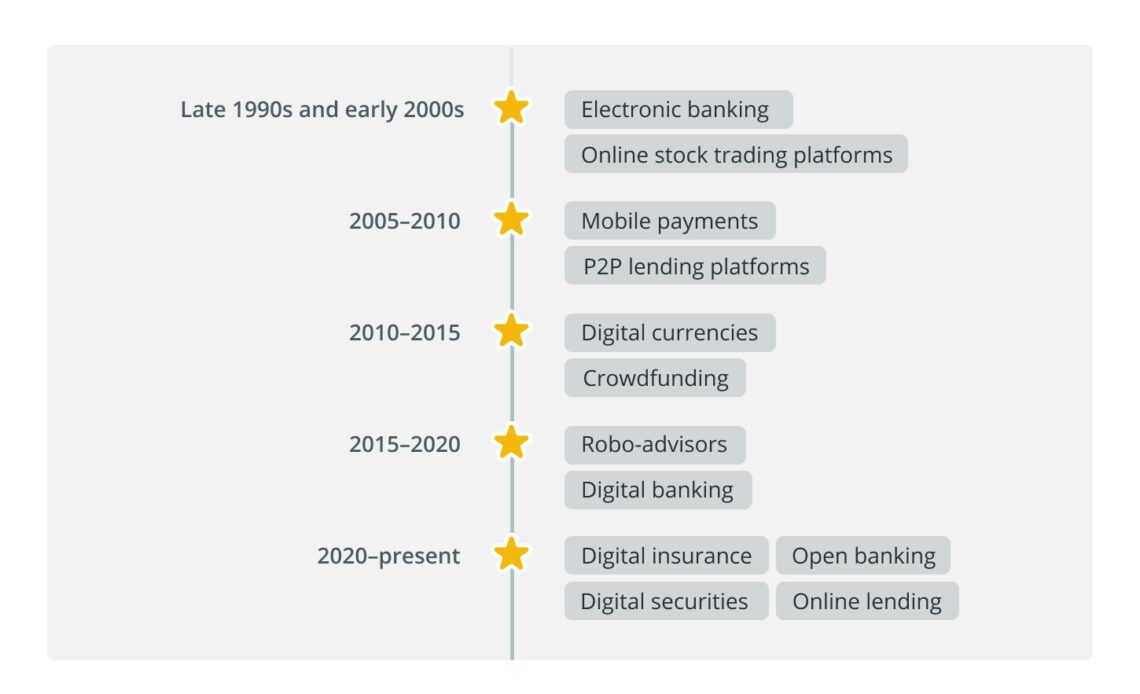The financial technology (fintech) industry has its roots in the late 20th century, with the advent of electronic banking and online stock trading. Since then, fintech has expanded and changed over time as a result of technological and internet advances. As a result, new financial services and products have been created with the intention of enhancing accessibility, simplicity and effectiveness in the financial services industry.
The 2008 global financial crisis aided the growth of fintech by increasing customer demand for non-traditional banking and financial services. By enabling customers to access financial services from any location at any time, the rise of mobile devices and the widespread usage of smartphones have also fueled the growth of the fintech industry. Today, fintech continues to shape the financial industry and is driving innovation in areas such as payments, lending, investing and insurance.
The evolution of the fintech industry
The fintech industry as we know it today did not exist before the late 1990s and early 2000s. Nonetheless, fintech’s origins can be traced back to the advent of computer systems and the growth of electronic banking in the financial services industry in the 1970s and 1980s. These early innovations set the stage for fintech’s expansion and development in the latter half of the 20th century and beyond.
The evolution of the fintech industry has been rapid and dynamic, with significant changes taking place year after year.
Late 1990s and early 2000s
Early adopters of the fintech sector offered fundamental financial services such as online stock trading and electronic banking when the sector was still in its infancy. The following are some instances of fintech products and businesses that appeared in the late 1990s and early 2000s:
- Online stock trading platforms: Customers were able to trade stocks online for the first time thanks to businesses like E-Trade and Charles Schwab, dramatically enhancing accessibility and convenience in the stock market.
- Electronic banking: Wells Fargo and Citibank, among other financial institutions, provided online banking services that let clients monitor their accounts and conduct financial transactions.
Additionally, payment processors, such as PayPal, emerged as early players in the payments space, providing consumers with a convenient and secure way to send and receive money online.
2005–2010
New products and services were created in industries, including payments, loans and insurance…
Click Here to Read the Full Original Article at Cointelegraph.com News…
